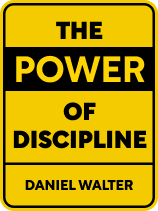

This article is an excerpt from the Shortform book guide to "The Power of Discipline" by Daniel Walter. Shortform has the world's best summaries and analyses of books you should be reading.
Like this article? Sign up for a free trial here.
What’s the Dunning-Kruger effect? How can it affect your capacity for self-discipline?
The Dunning-Kruger effect is a biological tendency that distorts our self-perception, particularly about our ability in a skill. Daniel Walter discusses it in the context of self-discipline. He explains what it is, how it affects our ability to self-discipline, and how to overcome it.
Keep reading for an overview of the Dunning-Kruger effect, particularly as it relates to self-discipline.
The Dunning-Kruger Effect
A tendency that can impact self-discipline is the Dunning-Kruger effect, notes Daniel Walter. This effect means that people who have low ability in a skill are more likely to overestimate their ability in that skill. According to this phenomenon, people who are bad at self-discipline are likely to overestimate their ability, and, therefore, neglect practicing it. This is problematic because self-discipline is a skill you must regularly practice to be good at it.
For example, someone who exhibits this tendency might leave work early as a reward for, in their view, usually being so self-disciplined about hitting their work hours. However, they’ve been rewarding themselves this way at least twice a week—they’re not disciplined in keeping to their work hours at all. Because this person falsely believes they’re a self-discipline expert, they neglect to ever practice the ability. This causes them to possess a lack of self-discipline.
(Shortform note: While it’s important to accurately judge your own abilities, the Dunning-Kruger effect might not be as big of a threat to self-discipline as Walter claims—recent studies show that the Dunning-Kruger effect might not actually exist. In one study, only 5 to 6% of unskilled participants overestimated their ability. Further, experts and novices overestimated and underestimated their skills at the same frequency.)
To avoid this tendency, Walter recommends seeking feedback from others—especially those that are proficient at the ability you want to work on. This way, you can receive constructive criticism that will help you improve your abilities and avoid the Dunning-Kruger effect.
(Shortform note: Walter’s recommendation to overcome the Dunning-Kruger effect by seeking feedback from others could be problematic because it fails to address the underlying problem causing the effect—a lack of self-awareness. To overcome this tendency in the long term, you arguably need to learn to accurately judge your own abilities, rather than relying on others to do so. Psychologists make a few suggestions for improving your general self-awareness, which in turn, will enhance your ability to accurately assess your self-discipline skills: Practice identifying your emotions and emotional triggers to become more in sync with yourself, and consider how your actions affect others to get a more objective perspective of your behavior.)

———End of Preview———
Like what you just read? Read the rest of the world's best book summary and analysis of Daniel Walter's "The Power of Discipline" at Shortform.
Here's what you'll find in our full The Power of Discipline summary:
- What self-discipline is and why we struggle with it
- How to do what you should do even if it's not what you want to do
- The six good habits that will override your bad habits






